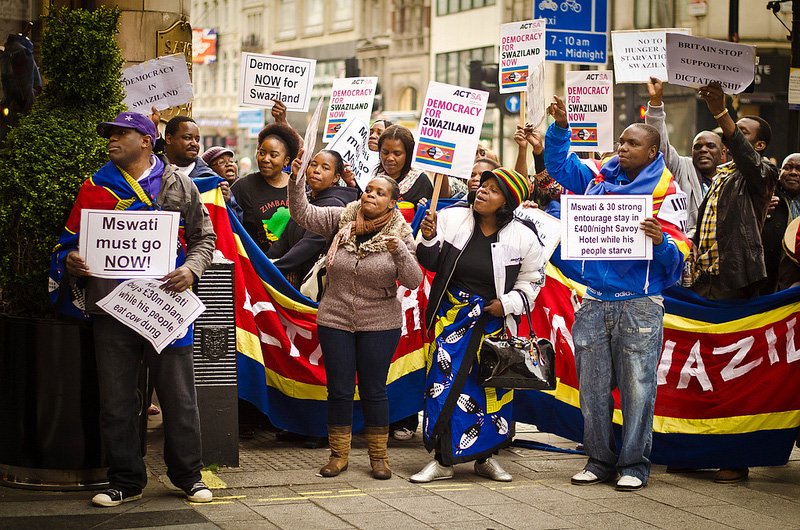A popular unrest has intensified in Eswatini, and so have state attempts to contain it. A landlocked nation in Southern African continent, Eswatini (erstwhile Swaziland), is rocked by Pro democracy protests which amplified after an Eswatini student Thabani was allegedly shot dead by the Police. Since it’s independence from the British in 1968, Eswatini has been governed through an absolute monarchy. The monarchy as of now is being lead by Africa’s last remaining absolute monarch King Mswati III, who took over in 1986. Experts suggest that years of misgovernance, massive expenditure on state opulence, a political system devoid of space for opposition parties has manifested into a civil and economic crisis for the nation. Hence, now citizens have resorted to roads to demand a govt. elected by the people, for the people and responsible to the people.
While reports suggested that the king has fled the country, official version denies any such development. As per local reports, martial law has been imposed and people are being allegedly shot dead by the army. The government officials have denied the reports suggesting about fatalities. The acting Prime Minister Themba Masuku has condemned the protests on the grounds of looting, violence, and violation of COVID-19 protocols. Meanwhile, a 16-member regional bloc Southern African Development Community (SADC) has announced an enquiry mission on police handling of the protests, which will arrive in the country on coming Sunday. United Nations and African National Congress, the ruling party in South Africa too have urged for restraint.
Amidst all this chaos, what lies ahead for a kingdom ravaged by the pandemic, an HIV infection rate as high as 26%, and 12th lowest life expectancy rate in the world?
To explore the shades of the current crisis, in the first part of it’s interview series,
The Voices interviews Human rights activist Melusi Simelane.
Simelane is the founder of Eswatini Sexual and Gender Minorities (ESGM), an organisation which is actively involved in human rights activism for Lesbian, Gay, Bisexual, Transgender and Intersex persons in the Kingdom of Eswatini. An erstwhile peer educator at University of Swaziland, he was also the country coordinator for Eswatini at Southern African Regional Students & Youth Conference (SARSYC).
Edited by: Raghujit S. Randhawa

